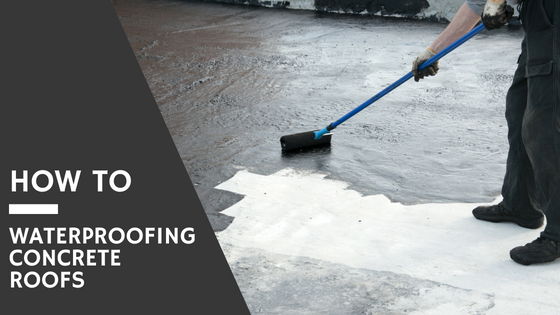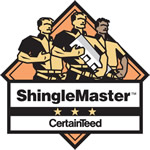How To: Waterproofing Concrete Roofs

One of the most recent trends in terms of house roofing is related to concrete roofs. After all, they are a part of the modern architecture.
The reality is that many people still think that concrete roofs are only meant for commercial buildings. Nevertheless, we are already starting to see many concrete roofs in homes and residential buildings.
While concrete is seen as a very resistant material, the reality is that it is also susceptible to damage from the elements. And this is why you should consider waterproofing concrete house roofs. One thing is for sure: it is well worth the investment since it will allow your roof to last for a longer time.
Concrete Cancer – How To Prevent It?
The reality is that concrete cancer tends to include many different problems associated to concrete that is embedded with steel.
One of the things that you probably don’t know is that the concrete needs to be reinforced with steel bars or with mesh. However, you need to remember that steel is a metal. So, it is subjected to corrosion when exposed to specific elements like air or water. When steel starts corroding, it will start to expand leading to some cracks and even breaks in the concrete. With these cracks, the steel exposition to the elements increases which causes more oxidation and even more damage on the concrete.
Most people tend to believe that steel will never be in touch with water because it is surrounded by concrete. Nevertheless, you can’t forget that concrete is a porous material meaning that it can absorb water. So, when you don’t waterproof the concrete, you’ll probably need to deal with concrete cancer.
The Concrete Cancer Phases
The reality is that there are ways that you have to notice that your roof may be starting to suffer from concrete cancer. In fact, concrete cancer has 4 different stages:
- the construction, curing, and design of concrete
- while the corrosion already began, there isn’t still a propagation of the damage
- the propagation starts to propagate through concrete causing deterioration
- the propagation continues and does a significant damage
Choosing The Proper Sealer For Your Concrete
The truth is that all concrete that is exposed needs to be protected with a sealer. However, you can’t simply use any sealer. You need to ensure that you are using the right sealer as well as that you apply it the right way. This is why it is always important to use a respectable roofing company that can advise you on the best sealer to use.
The main advantage of using sealers is the fact that it doesn’t only prevent the buildup of fungus and mold on the concrete as well as it also protects the concrete from moisture.
How Does The Concrete Sealer Work?
When you are waterproofing a concrete roof, you’ll need to apply a topical sealer to the surface of the concrete. This is an impermeable sealer and it should form a waterproof membrane around the concrete. This is what prevents moisture from entering the concrete.
Related posts:

In Awe Roofing Limited is an Award-Winning, family owned and operated Vancouver Roofing Contractor with over 17 years of roofing experience. We serve the entire Lower Mainland area, from Whistler to Chilliwack, employing a team of professional staff members. Our team has won numerous awards including Best of Homestars for the last five years, and Three Best Rated six years in a row. Learn more






















